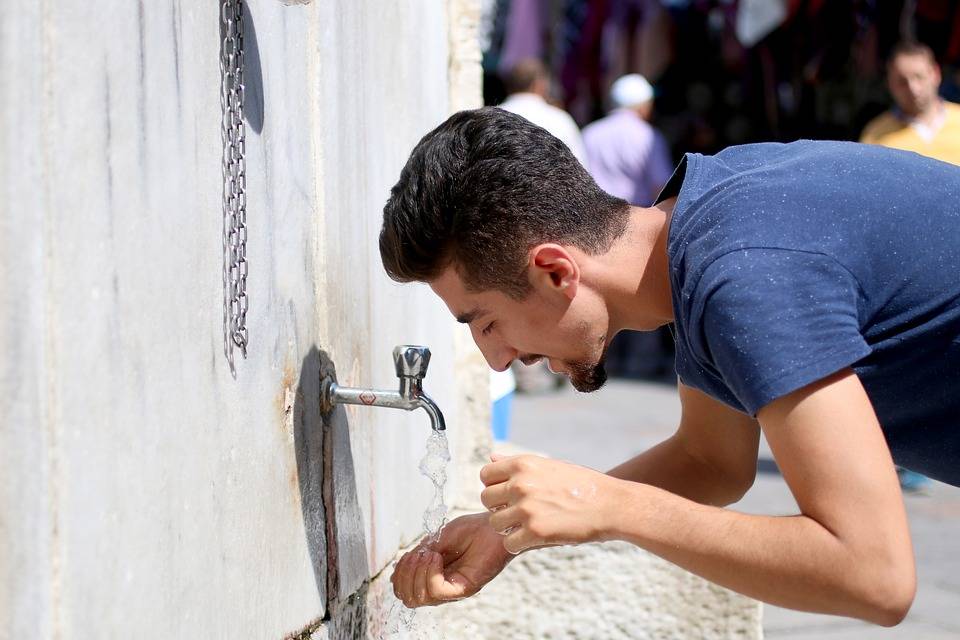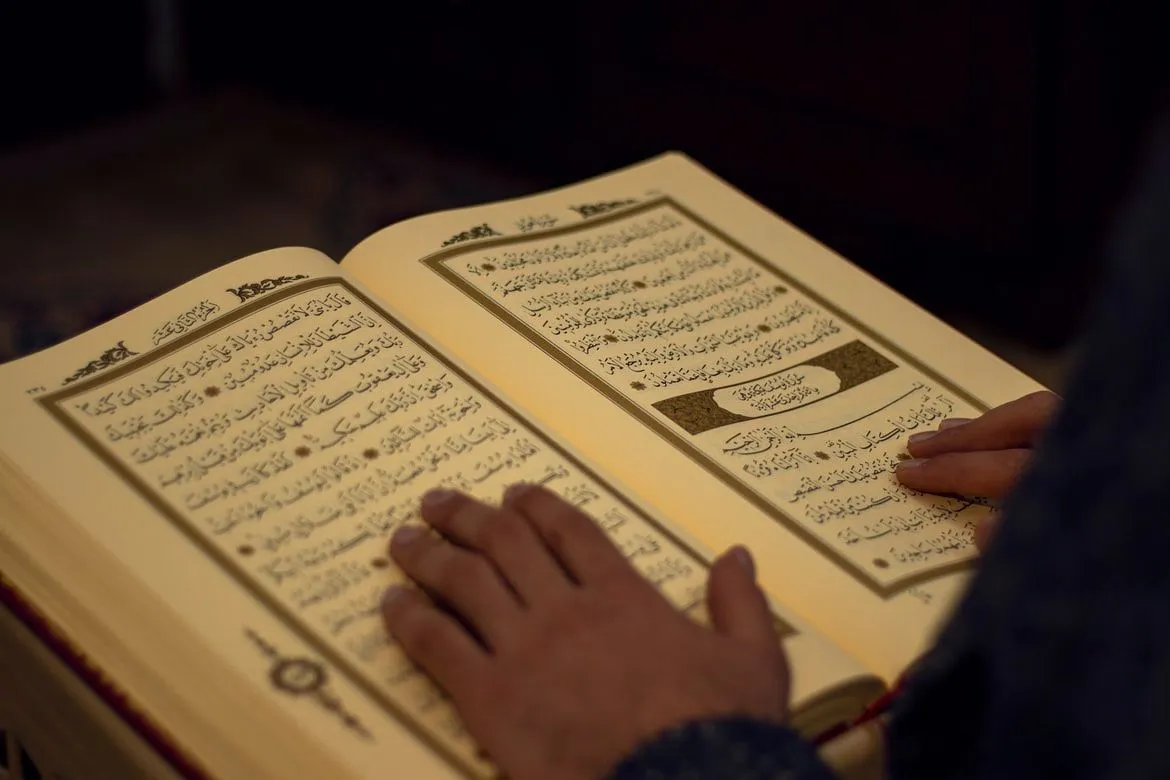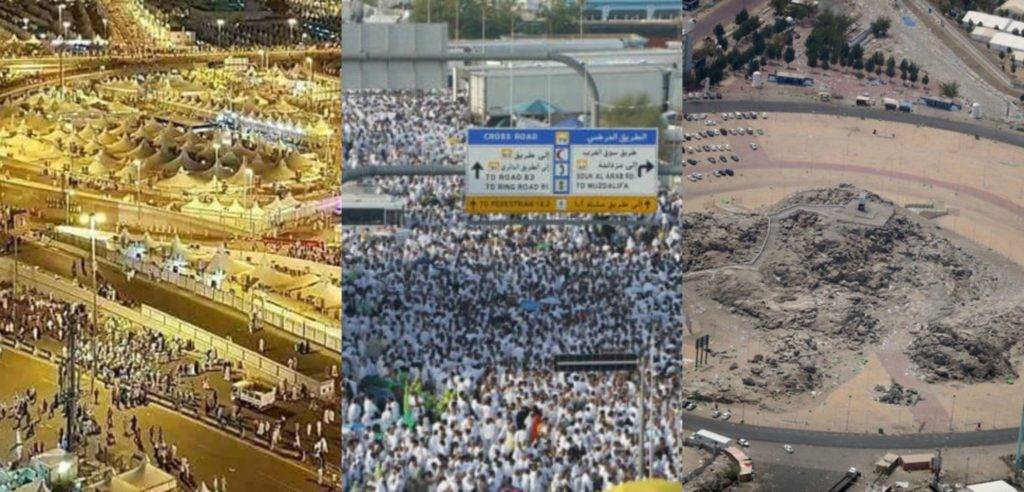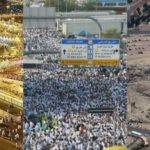
In the last post, we have discussed the khushoo in prayers. Significantly virtues of wudu imply to gain concentration in our all ibadat especially Salah. So let us start with a brief description of Wudu.
What is Wudu (ablution)?
Being a Muslim, we all know that Wudu (ablution) is an aspect that we partake in before prayer. This practice ensures that we are clean and pure before the worshipping of Allah (SWT). Verily, ablution cleanses ourselves spiritually through all the sins that we have committed.
Uthman ibn Affan (RA) reported that the Messenger of Allah (ﷺ) said:
He who performed ablution well, his sins would come out from his body, even coming out from under his nails”
(Sahih Muslim)
From several Hadiths, it has been emphasized that when a person performs wudu, it washes away all the sins from past time. Even if one speaks haraam and when they go to wash their mouths in ablution, they cleanse all impurities.
How to make wudu (ablution)?
When one thinks to start ablution, an intention has to be made. It should not have to be verbalized but Bismillah should be said either from a tongue or in the heart. Start off the ablution by washing your right hand first and then left hand three times. After that rinse your mouth three times and rinse your nose three times by blowing the water out. Then make sure to wash your face three times from the hairlines to the jawbone and chin, and from ear to ear. The next step is washing your arms till elbow three times. Afterward, wipe the head by the back of your neck and ears. The last step is washing your feet three times. Wash your right foot first ensuring the ankles and bones at the bottom of feet get wet.

Dua after Wudu
A dua that should be said after making wudu is,
Ash-hadu an la ilaha ill-Allahu wahdahu la sharika lahu, wa ash hadu anna Muhammadan ‘abduhu wa Rasuluhu
‘I testify that there is no one worthy of worship but Allah, He is Alone and has no partner and Muhammad (ﷺ) is his slave and Messenger’.
(Bulugh al-Maram)
Humraan, the freed slave of ‘Uthmaan, said that ‘Uthman ibn ‘Affaan (RA) performed the ablution steps. Hadith says:
“He washed his hands three times, then he rinsed his mouth and nose, then he washed his face three times, then he washed his right arm up to the elbow three times, then he washed his left arm likewise. Then he wiped his head, then he washed his right foot up to the ankle three times, then he washed his left foot likewise.”
Then he said,
“I saw the Messenger of Allah (ﷺ) doing wudoo as I have done it, then the Messenger of Allah (ﷺ) said, ‘Whoever does wudu as I have done it, then prays two rak’ats in which he focuses completely on his prayer, his previous sins will be forgiven.’”
(Muslim)
When should wudu (ablution) be made?
Ablution is not only limited to perform after natural discharging conditions like urination, releasing gas, getting unconscious, fainting, or sexual intercourse, but it should also be done whenever the sin is committed, as explained by Sheikh Abu Bakr Zoud.
Performing ablution implies to have a purified appearance before every prayer both spiritually and physically.
Wisdom of Wudu
Allah (SWT ) says,
“O you who have believed, when you rise to [perform] prayer, wash your faces and your forearms to the elbows and wipe over your heads and wash your feet to the ankles… Allah does not intend to make difficulty for you, but He intends to purify you and complete His favor upon you that you may be grateful.”
(Qur’an 5:6)
The above verse is clearly highlighting the virtues of wudu. It is a blessing from Allah (SWT) that purifies the existence of a Muslim. He stated the methods to make a wudu with in-depth details.
Ibn Abbas narrated,
“I saw the Prophet (peace be upon him) performing the ablution in this place and he performed in the perfect way and said, ‘Whoever performs the ablution as I have done this time and then proceeds to the mosque and offers a two rak’at prayer, all his past sins will be forgiven.’”
(Al-Bukhari)
Another hadith says:
Whoever of you performs Wudu carefully and then affirms,`Ash-hadu an la ilaha illallahu Wahdahu la sharika Lahu, wa ash-hadu anna Muhammadan `abduhu wa Rasuluhu [I testify that there so no true god except Allah Alone, Who has no partners and that Muhammad is His slave and Messenger],’ the eight gates of Jannah are opened for him. He may enter through whichever of these gates he desires (to enter).”
(Muslim)
Virtues of Wudu (ablution) in the light of Hadith
The completion of wudu yields many rewards for the person in both lives. With the cleansing of the body, it brings peace to mind and heart when the believer performs ablution. Doing the ablution includes the individual among al-ghurr al-muhajjaloon on the Day of Resurrection.
The Prophet (ﷺ) said,
“My nation will be called on the Day of Resurrection by the name ghurr muhajjileen (implying that parts of their body will be glittering or radiant) due to the traces of ablution. Whoever among you who can lengthen his portions of radiance should do so.”
(Al-Bukhari and Muslim)
Other Hadith saying about the expiation of sins through Wudu is,
Our prophet Muhammad (PBUH) said, ‘He who performed wudu like this, all his previous sins would be expiated and his prayer and going towards the mosque would have an extra reward.’
(Muslim)
These are the virtues of Wudu highlighted in the Holy Quran and Hadith. If you have something to add, let us know.







